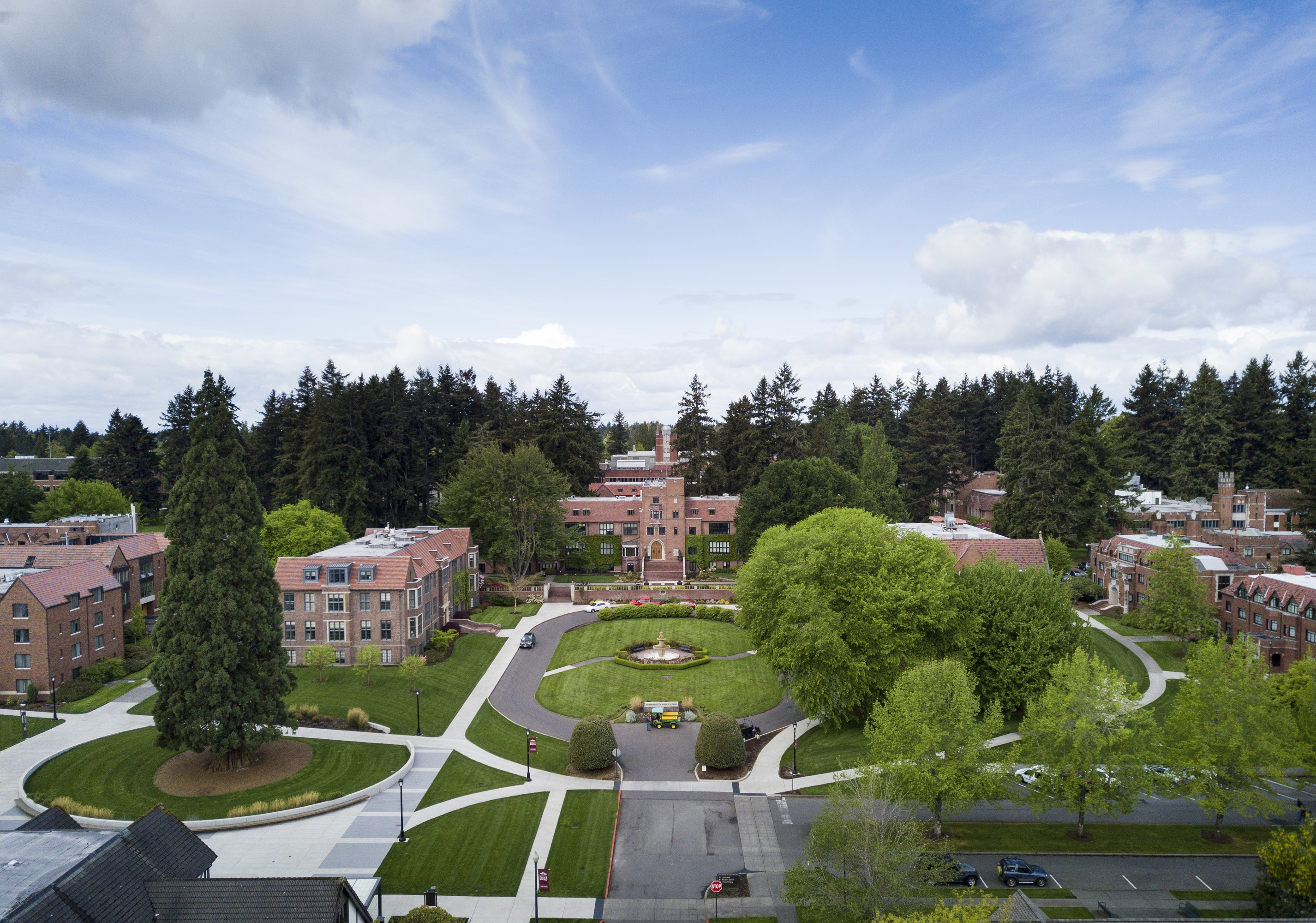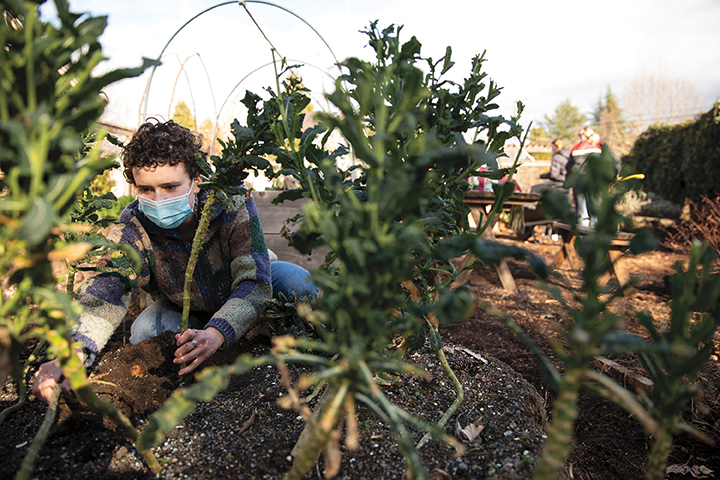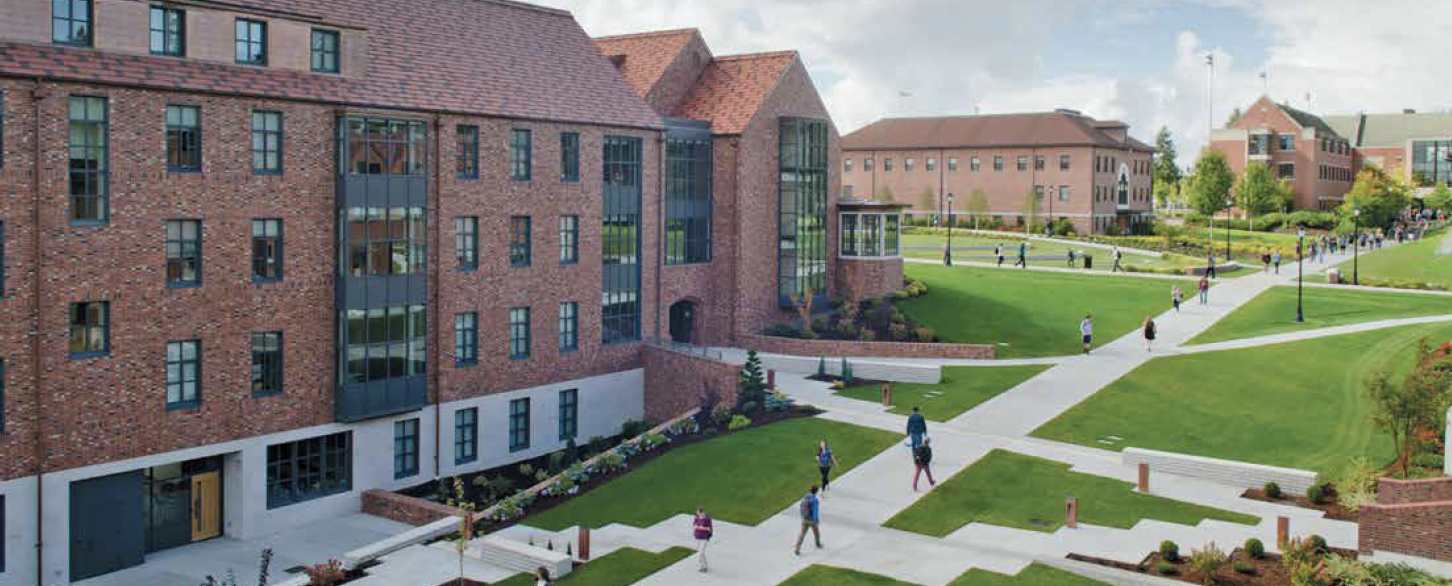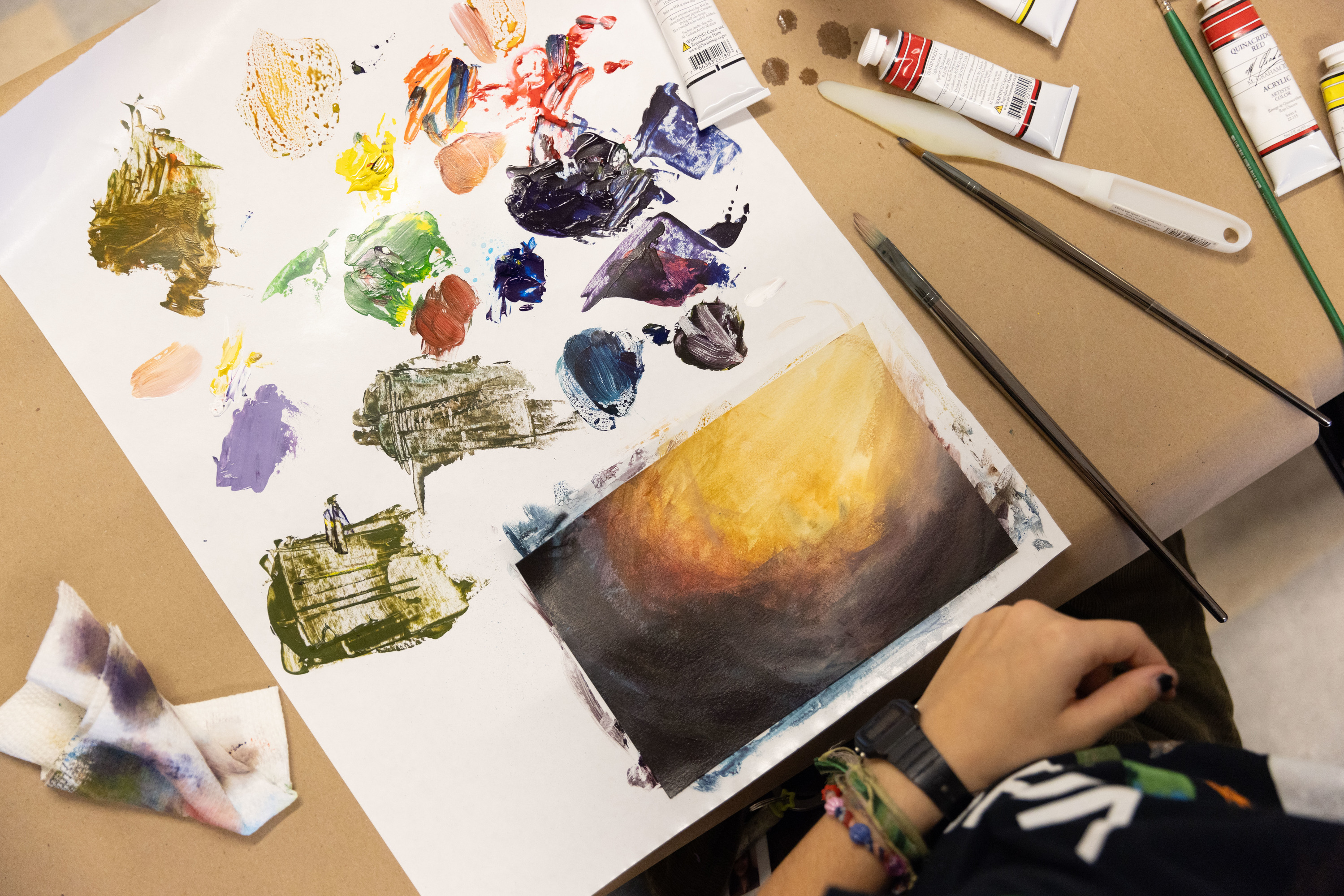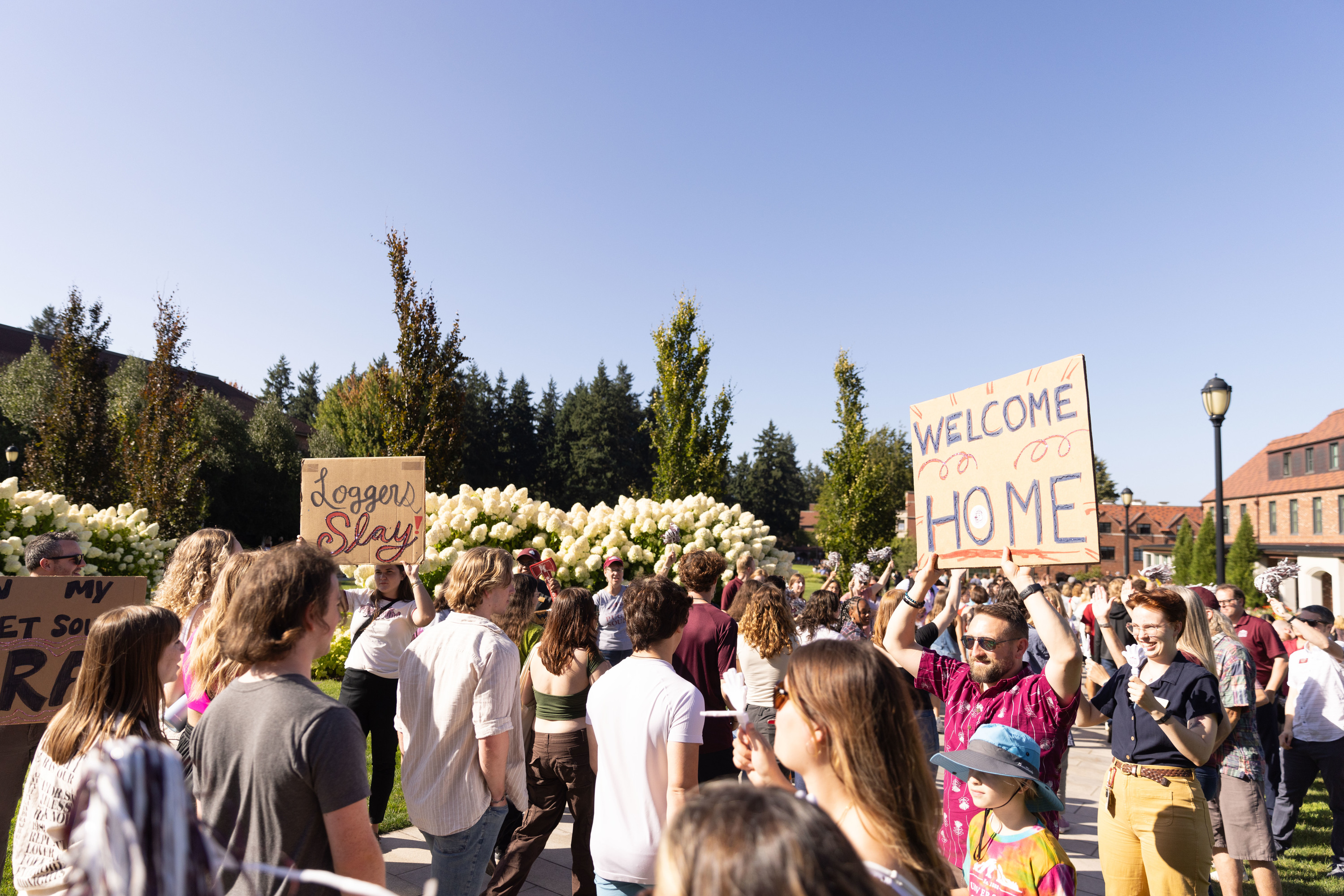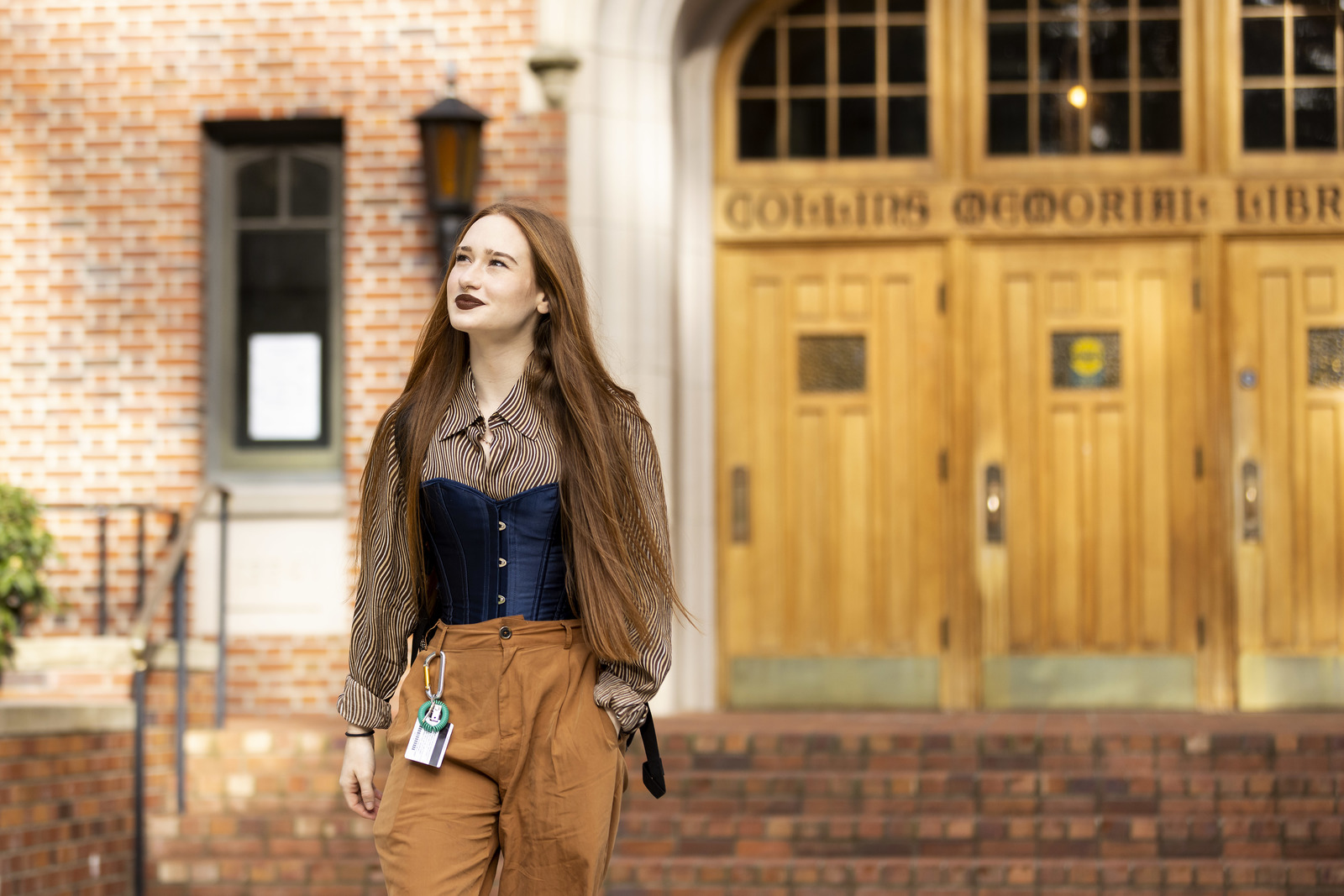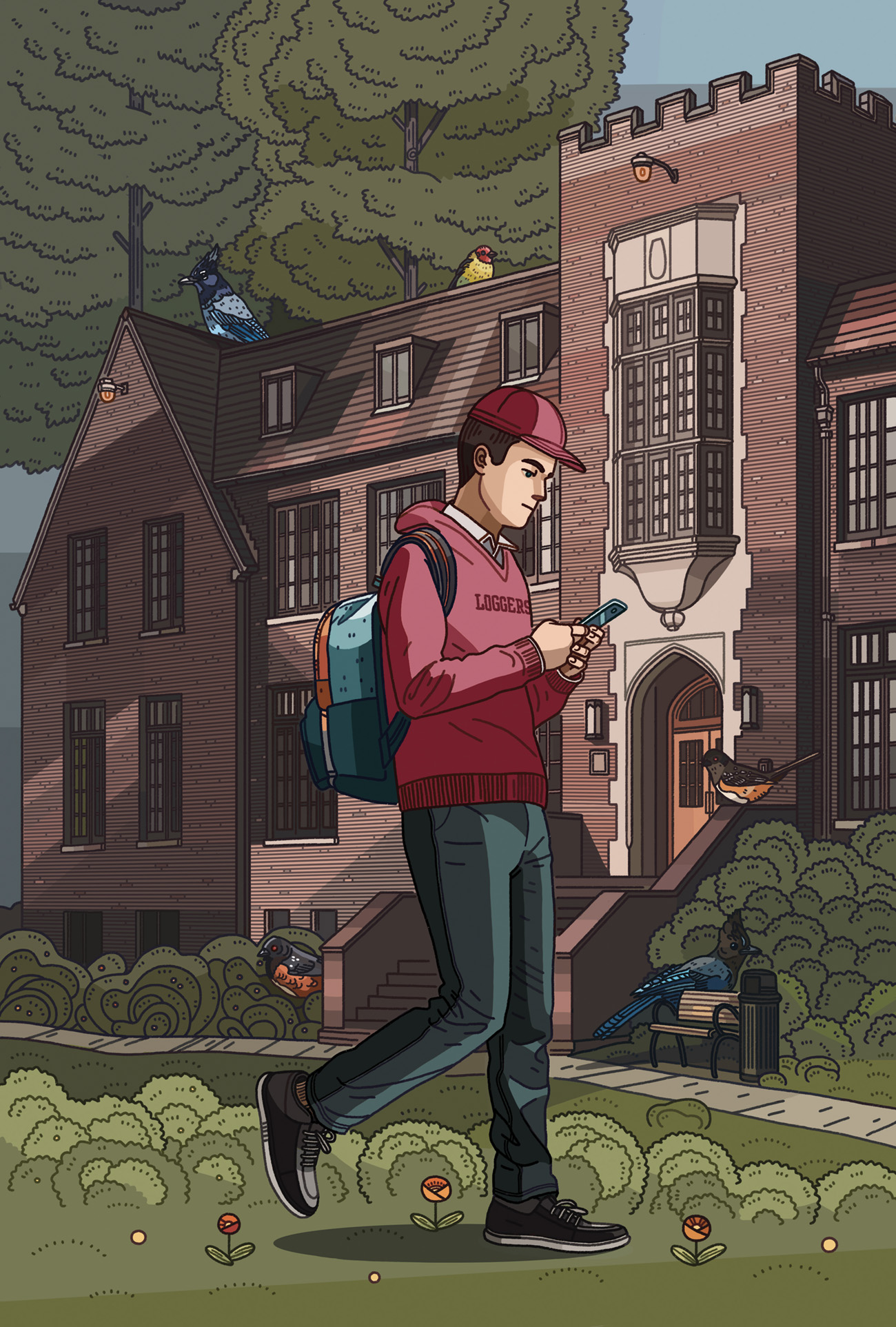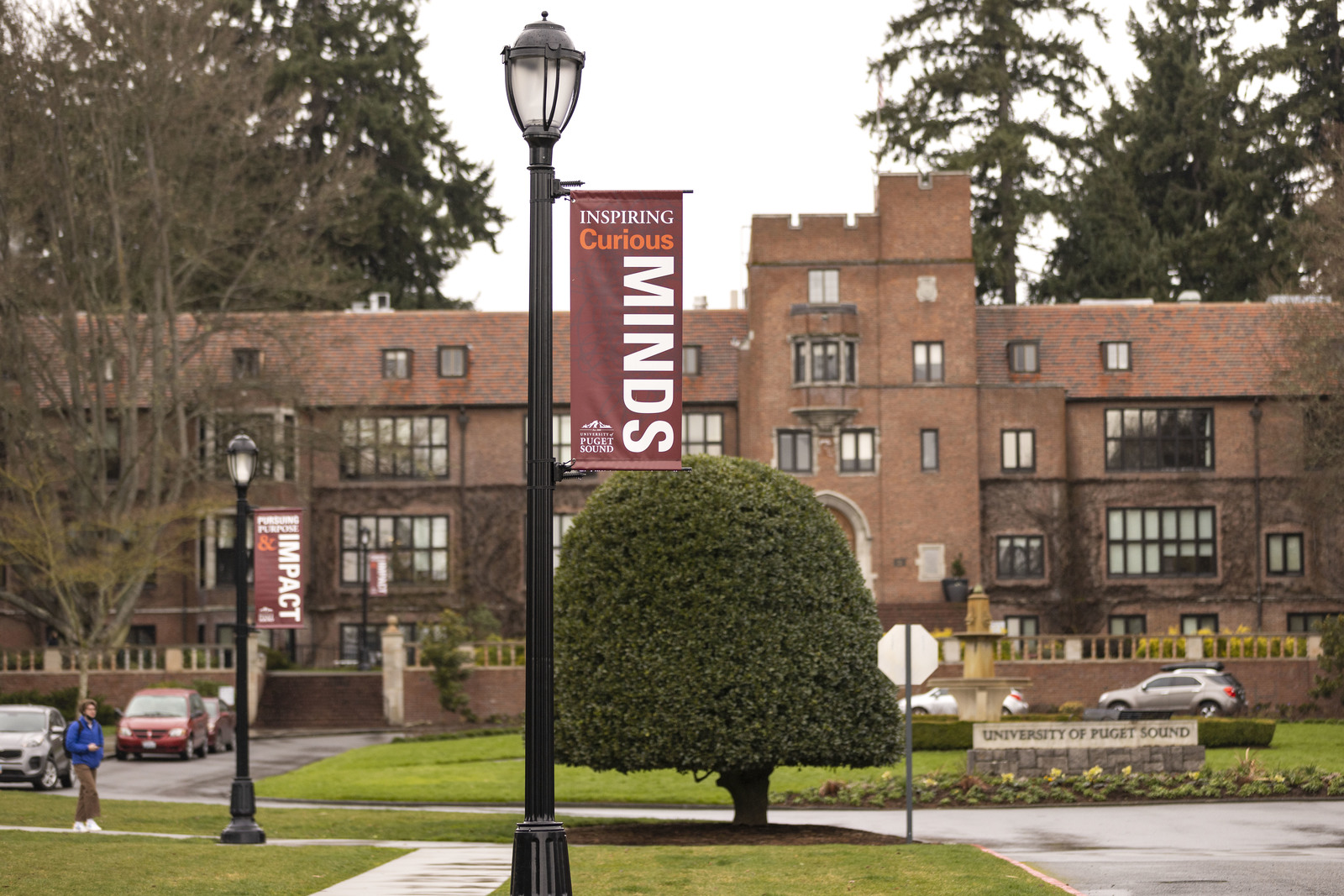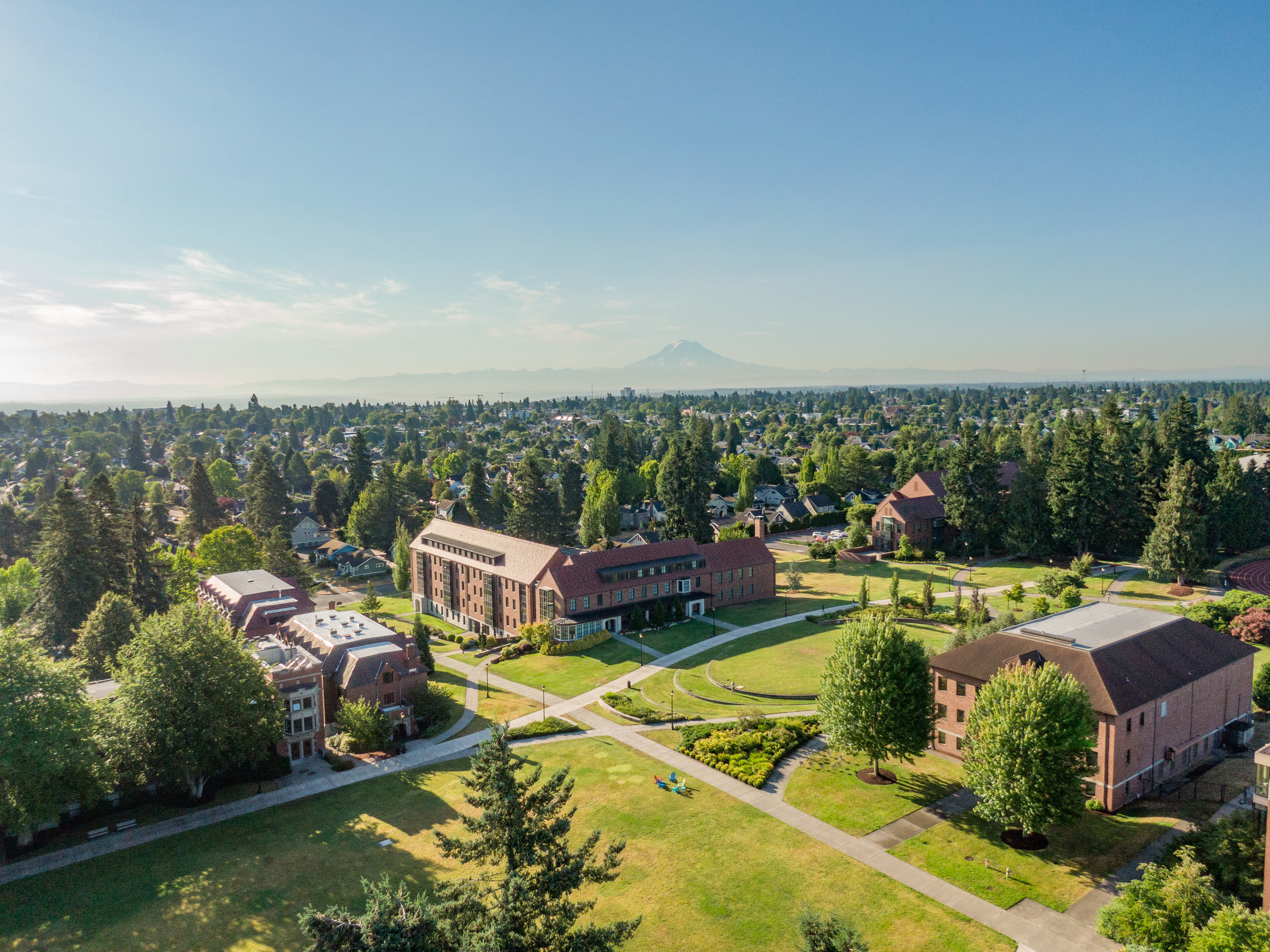Puget Sound consistently ranks among the top-producing colleges for the Fulbright U.S. Student Program.
Every year, University of Puget Sound students are selected to receive highly competitive grants, awards, scholarships, and fellowships which enable them to continue their educations and dive deeper into their fields of expertise. This year is no different, with nine Loggers being named semi-finalists for the Fulbright U.S. Student Program, including four finalists for the award and one alternate.
Students at Puget Sound receive support from faculty and staff to identify and apply for opportunities like the Fulbright program, as well as support through the application process. Some of the faculty involved include the graduate fellowships committee, which includes Katherine Smith, Patrick O’Neil, Peter Hodum, Jeff Grinstead, Rokiatou Soumare, Kristen Johnson, Ariela Tubert, and Kristopher Imbrigotta, as well as faculty consultants in the Center for Writing and Learning, including Amy Spivey and Regina Duthely. Throughout the process, students receive guidance from Associate Director of Fellowships and Academic Advising Kelli Delaney.
The Fulbright program offers recent college graduates the opportunity to expand their worldviews, exchange ideas, and build new networks of colleagues and friends in countries around the world. We asked a few members of this year’s cohort to tell us about their hopes for the program.
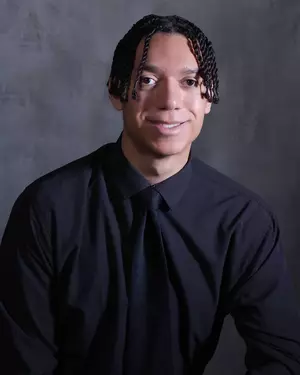
Leonardo Hall ’23, finalist
Major: International Business
Minor: Economics
Country: Bulgaria
After spending a semester abroad in northern Italy, Leonardo Hall is excited to stamp his passport to Europe again this summer with the Fulbright U.S. Student program. This time, he’ll be heading to Bulgaria as an English teaching assistant.
“Slavic influence has been present in my life from an early age and the opportunity to immerse myself in Bulgarian society feels like the natural next step in my life after graduating from Puget Sound,” Hall says.
During the 10-month program, Hall will be placed at a school to help students learn English. He’ll also be stepping out of his comfort zone living in a Balkan nation for the first time and experiencing all that Bulgarian culture has to offer. Hall was inspired to apply to the Fulbright program after taking a class on business in Europe with Visiting Assistant Professor Andreas Udbye. The course ignited his passion for international business and seeing things from a global perspective.
“Eastern Europe has a lot to offer and I’m excited to demonstrate what I can contribute to Bulgaria.”
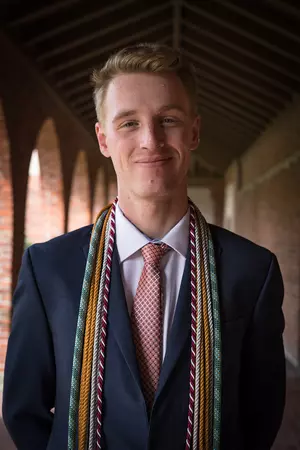
Nick Thompsen ’22, finalist
Majors: Economics and International Political Economy
Minor: Spanish and Mathematics
Country: Mexico
Nick Thompsen is a finalist for the Fulbright Binational Business Program. Administered by the U.S.-Mexico Commission for Educational and Cultural Exchange, the program places recent graduates from the United States in internships in Mexico to foster mutual understanding between the private sectors of both countries. In addition to gaining hands-on experience, the program provides participants with MBA-level academic coursework. For Thompsen, the chance to return to Mexico was too good to pass up.
“I’ve always had a connection with Mexico, beginning when I lived in Guanajuato with my mom when I was 5 years old and most recently when I lived in Mexico City my junior year on a self-directed study abroad program,” Thompsen says.
During the 10-month program, Thompsen will learn about the intersection of global development and insurance with a focus on the risks facing Mexico’s emerging middle class. He hopes to help individuals mitigate and cope with those risk factors so they can continue to improve their economic standing. Thompsen is also looking forward to exploring Mexico’s vibrant capital city by bike, eating amazing food, and cultivating new personal, professional, and academic relationships.
“I don’t just look at problems through one lens or solely as an economist,” Thompsen says. “I seek to understand issues from multiple angles and find a solution that better addresses the interdimensional roots of the problem. I credit Puget Sound, and specifically the Honors Program, with helping me to ground my studies in a broader context to make me aware of topics and approaches outside of my discipline.”
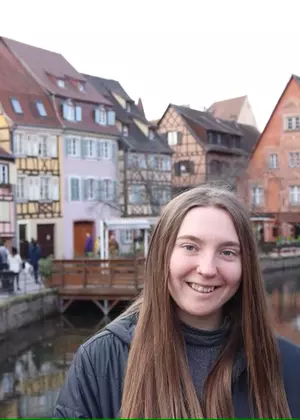
Sofia Lavinder ’22, MAT’23, finalist
Major: Psychology
Minors: Education Studies, Spanish
Graduate Program: Master of Arts in Teaching
Country: Poland
As a graduate student in Puget Sound’s Master of Arts in Teaching program, Sofia Lavinder applied to the Fulbright U.S. Student Program to further her teaching skills and also to connect to her own Polish ancestry.
“Moving forward in my own career, I felt that Poland was the best place for me to learn more about my identity while also growing as an educator in a country outside of my comfort zone,” Lavinder says.
Lavinder applied to the English teaching assistant program and hopes to be placed at a university where she can also volunteer. During her time as an undergraduate at Puget Sound, she was a dual-sport student-athlete, competing as a member of the basketball and golf teams. Her experience with Logger Athletics was the catalyst behind her interest in trying new things while staying disciplined in the classroom. If placed in Poland, she plans to facilitate those same positive experiences for her students as a coach. She’s also excited to eat as many pierogies and gołąbki as she can—foods that remind her of holidays with her grandparents.
“I believe that Puget Sound’s liberal arts offerings were instrumental in creating the person I am today,” Lavinder says. “I would be lying if I said that I wasn’t nervous to be across the world from my family, but I know that because I am going to immerse myself in the country and bring who I am into the classroom that I will be a changed person in a year’s time.”
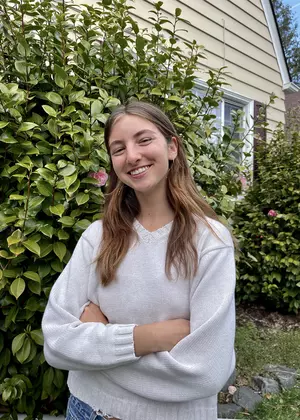
Annie Kisska ’23, finalist
Major: German Studies, Honors
Country: Germany
After studying abroad in Munich for her junior year, Annie Kisska witnessed firsthand the impact that cultural immersion has on the development of one’s foreign language skills. Her confidence and ability to converse in German improved more in eleven months than in six years of classroom instruction. She hopes to return to Germany with the Fulbright U.S. Student program to continue growing her language skills.
“I had such an incredible experience living in Germany, I knew my post-grad plans had to involve getting me back there,” Kisska says. “I feel my best when my surrounding environment challenges me, and every day interacting in a foreign language turns the simplest of tasks into an endeavor.”
Kisska also found herself fascinated by the German educational model, where students are sorted into different academic tracks at an early age. By working with younger students as an English teaching assistant, she hopes to help them gain the skills and grades needed to qualify for the university track—giving the same opportunities she’s had as a college student in the United States.
“The unwavering support from faculty and staff I’ve received throughout this entire application process astounds me to this day,” Kisska says. “I am especially grateful to my advisor, Professor Kris Imbrigotta, who since my first day here has done nothing but instill in me confidence in my potential. I’ve learned to push myself and reach for opportunities that I previously would have immediately written off as unachievable.”
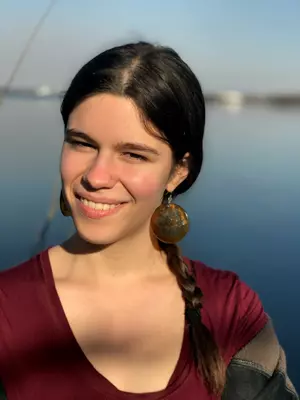
Kyra Zapf ’21, semi-finalist
Major: English, honors
Emphasis: Interdisciplinary humanities
Country: United Kingdom
Kyra Zapf is excited about the opportunity to continue her research with the Fulbright program after spending a year retracing the original route of the Silk Road and learning about traditional textiles as a Watson Fellow. With funding for the humanities hard to come by, Zapf plans to study the history of textile manufacturing at the University of Glasgow in Scotland.
“The University of Glasgow has the only dress history master’s degree in the world,” Zapf says. “With its amazing wealth of museums and libraries, it was an obvious choice!”
Using the data she collected on her travels around Europe, the Middle East, and Asia, Zapf will embark on a new project within the textile history field and get to work with the centuries-old pieces of cloth housed in the university’s collections. Ultimately, she hopes her creative and academic interests will help her contribute to creating more sustainable fabrics.
